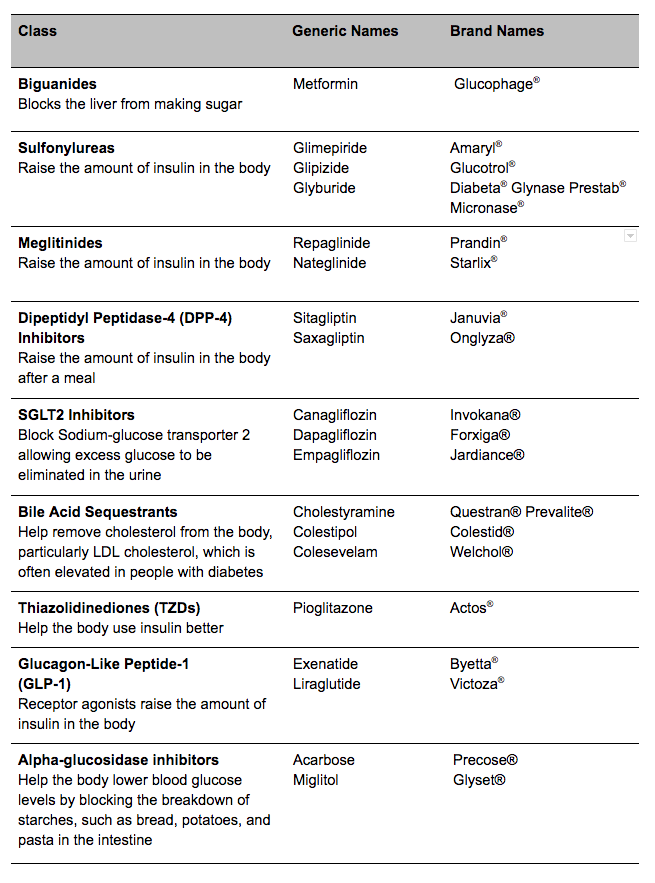November 1, 2017
The good news is that there is a lot you can do to manage your diabetes and live a healthy life, but the keyword is manage. While there are many treatment options, the key to success is actively taking charge of your treatment and making the commitment to work with your care team to help you live a healthy life.
Type 2 diabetes is a progressive disease that causes blood glucose or sugar to rise to levels that are higher than normal. This is called hyperglycemia. According to the American Diabetic Association, the cause is that your body either doesn’t produce sufficient amounts of insulin or does not use insulin properly, which is called insulin resistance.
Why You Need to Manage Blood Sugar
Insulin is a hormone made by the pancreas that plays a key role in helping your cells either use sugar from carbohydrates for energy or store it for later use. If your body isn’t responding properly to insulin, over time your blood glucose levels rise, which can lead to complications ranging from heart attack, stroke, kidney damage, amputations, and blindness.
Treatment Goals
It is important to know that there is currently no cure for type 2 diabetes. Successfully treating type 2 diabetes will require a combination of therapies aimed at keeping your blood sugar as close to the normal range as possible.
Treatment Options
It often surprises people newly diagnosed with type 2 diabetes that their first treatment options are diet and exercise. But for many people with early stage type 2 diabetes, watching what they eat, losing weight, and increasing daily activity levels may be enough to reach their target ranges for blood glucose levels. Some people may even able to reverse their diabetes.[1]
Diet to Keep Blood Sugar in Range
Diets for people with diabetes are much less restrictive than they used to be. In general, you may need to eat smaller portions and learn to choose a variety of healthy foods, including vegetables, whole grains, fruits, and non-fat dairy food, as well as avoid foods with high amounts of added sugar. A healthy diet also means evenly spacing your meals throughout the day and not skipping meals. This will help to keep your blood sugar from spiking or dropping sharply.
Exercise Is Key
Any type of physical exercise you do will cause your body to use blood sugar for energy and remove it from your blood. Find an exercise you like so that you will want to do it, and then make it a routine to exercise at least 30 minutes a day.
Medications
Type 2 diabetes is a progressive disease; consequently, if diet and exercise are not enough to keep your blood sugar as close to normal ranges as possible, you may need medication to help. If your diabetes is still in an early stage, there are numerous oral medications that work in a variety of ways to help control blood glucose levels. If your diabetes continues to advance, you may need to take insulin, which cannot be taken orally. See related article on Pump, Pens, or Injection?.
There is a dizzying array of different types, or classes, of drugs that work in different ways to lower blood glucose (blood sugar) levels. This table from PubMed Health may help you understand how each works and should help you and your care team find the right medications to get you to your goals.

At Healthcare Associates of Texas, we specialize in finding the optimal treatment for you. Our diabetes specialists work with you to help you manage your type 2 diabetes and reach your blood sugar goals. Book an appointment today.
[1] Michael EJ Lean, MD, Wilma S Leslie, PhD, et al; Primary care-led weight management for remission of type 2 diabetes (DiRECT): an open-label, cluster-randomised trial. The Lancet, Volume 391, No. 10120, p541–551, 10 February 2018
DISCLAIMER
The information featured in this site is general in nature. The site provides health information designed to complement your personal health management. It does not provide medical advice or health services and is not meant to replace professional advice or imply coverage of specific clinical services or products. The inclusion of links to other web sites does not imply any endorsement of the material on such websites.